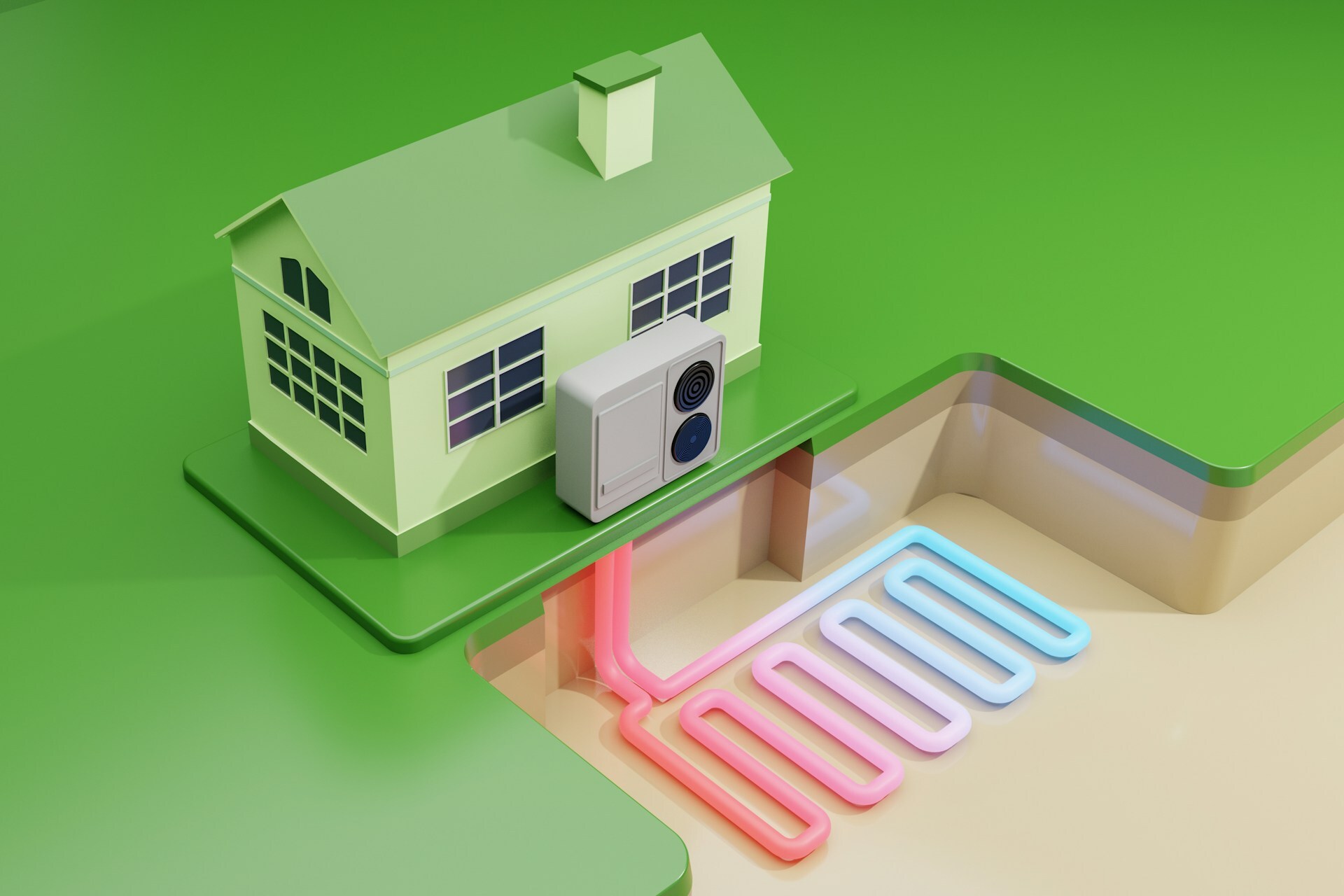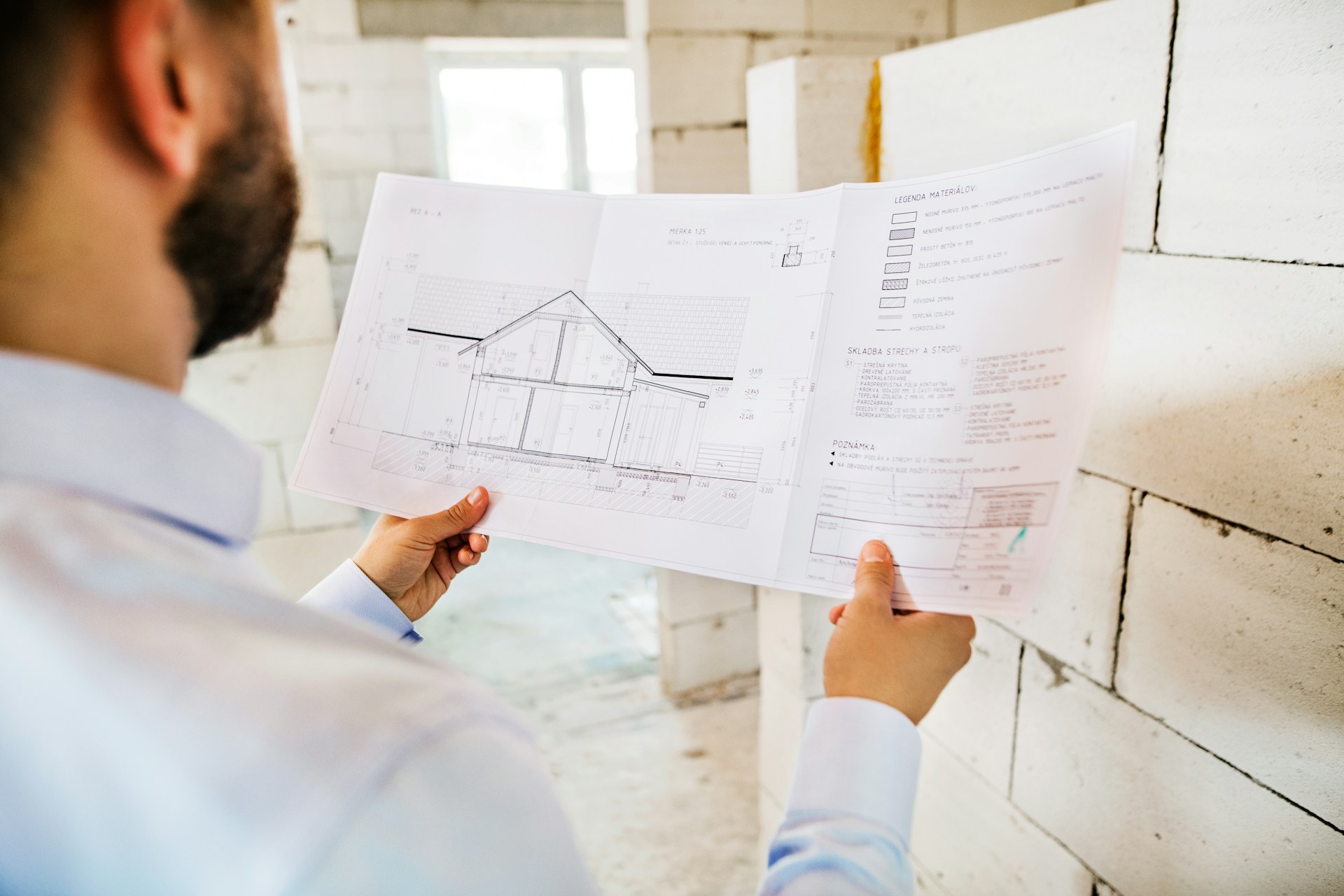
If your HMO isn’t current with heating standards, you risk more than tenant satisfaction. Today’s tenants expect more from their living spaces —they want comfort, convenience, and sustainability. What’s more, heating norms are in gear with strict safety and living standards. An efficient heating system will serve you better than setting your HMO above the competition. With the proper foundation, you can effectively manage regulations and heating costs, both crucial for achieving long-lasting returns. Let’s tackle how you can balance compliance with cost-effective heating solutions while making your HMO investment both profitable and sustainable.
UNDERSTANDING HMO REGULATIONS
The UK has stringent regulations regarding housing standards and tenant rights, particularly under the Homes (Fitness for Human Habitation) Act 2018. This Act is crucial for HMO property investors and landlords to understand as it directly impacts legal responsibilities. We know improving your HMO marketability is vital to your investment and strategy, and so is risk mitigation. Familiarising yourself with these regulations can help you increase your property’s efficiency and avoid costly penalties.
The Act ensures that all rental properties, including HMOs, are fit for human habitation at the beginning and throughout the tenancy. It clarifies that properties must remain free from severe defects in crucial areas such as dampness, natural lighting, ventilation, water supply, and temperature—or any other hazards defined in the Housing Health and Safety (England) Regulations 2005. In simple terms, under UK regulations, exposure to low temperatures (excess cold) is considered a hazard for tenants.
WHAT ARE THE HEATING REQUIREMENTS FOR HMOS?
Some councils may have a more stringent interpretation of the criteria, so our advice is always to check with your local authority for the specifications in your area. To illustrate, let’s look at the essential heating requirements as outlined by the London Borough of Camden:
- Fixed Space Heating:
- Every bedroom, living room, bathroom, and kitchen diner must have fixed space heating —i.e., a permanent installation to provide space
- The heating system should maintain a constant temperature of at least 21ºC in bedrooms and bathrooms and at least 18ºC in all other areas—this is particularly significant when the temperature outside drops to 1°C or less.
- Temperature Control:
- Heating sources must have suitable controls for occupants to programme and regulate their room temperature.
- This can include the provision of thermostatic radiator valves (TRVs) and thermostats for electric heaters.
- Compliance Standards:
- From 1st January 2018, all new heating sources installed in HMOs must comply with Lot 20 —a set of energy efficiency regulations for electric heaters and other household electronics.
- The Lot 20 standard highlights energy-efficient requirements (a minimum efficiency rating of 38% with an output of 250W). It also establishes enhanced heating controls for tenants, such as electronic thermostats —to maintain temperature control, 24/7 timers —and other requirements for comfort and efficiency.
- Centralised Heating Systems:
- If there is a centralised heating system, tenants should have access to heating, ensuring constant and individual access to a warm living environment.
YOUR HEATING OBLIGATIONS AS AN HMO LANDLORD
For landlords, ensuring compliance with the Fitness for Human Habitation Act means rigorous attention to heating and energy efficiency regulations. To meet these standards, adequate heating systems must be maintained through the tenancy period. This is especially relevant given the high occupancy levels and the quick wear and tear typical in HMOs.
Notably, the Act also gives tenants the power to take legal action when the landlord fails to comply with the requirements. This means that if an HMO falls below acceptable standards, tenants can go to court. In addition to carrying out the repairs, the court could order the landlord to pay financial compensation.
Part of your responsibility as a landlord is to address any reported hazards in your HMO in a reasonable time. But bear in mind, if it comes to it, it’s up to the courts to decide what a ‘reasonable time’ is depending on the circumstances (e.g., could it be or quickly become an emergency?). That’s why we encourage a proactive approach to scheduling regular inspections and maintenance, and should you receive a complaint, address your tenant’s concerns promptly and any faulty systems immediately where possible.
The HMO tenancy agreement should specify the tenants’ obligations to report any concerns and defects. Equally important, they must be aware of their responsibilities to use the installations correctly, including the specific and authorised heating appliances.
THE BASICS OF HEAT-SMART HMOS
When we speak of heat-smart, it’s about optimising your property’s heating system to provide comfort, reduce costs, and minimise environmental impact. Your aim is larger than meeting landlords’ heating obligations. You want to build a reputation for your property portfolio that attracts tenants and keeps void periods to a minimum while making your HMO more efficient and lucrative. And yes, in compliance with all the HMO stringent regulations, you can protect your investment and your tenant’s safety.
How do you make your HMO heat-smart?
The first step in making your HMO heat-smart is conducting an energy audit. This involves assessing your property’s current energy use and identifying areas for possible improvements. An energy audit will provide a comprehensive overview of your property’s energy efficiency, including heating system performance, potential sources of energy waste, and even insulation quality. So, before you go looking for the best HMO thermostat, this is how you get started:
- Hire a Professional Energy Assessor: A certified energy assessor who can thoroughly inspect your HMO and offer detailed insights and recommendations.
- Review Current Energy Bills: Analyse your existing energy bills to understand consumption patterns and costs. This will help you pinpoint periods of high usage and potential inefficiencies.
- Get Tenant’s Feedback: In addition to the energy bills, tenant feedback can give you good insights on efficiency and possible areas where heat loss may be a concern.
- Inspect Insulation: This is also covered under the Homes Fitness for Habitation Act. Check the quality of insulation in walls, roofs, and floors. Double-glazed windows are standard for better insulation keeping the property free of drafts and preventing heat loss.
- Evaluate the Heating System: Assess the efficiency of your current heating system, including radiators, thermostats, controls, etc. Upgrade to more energy-efficient solutions such as a new boiler or installing smart thermostats for better control when possible.
- Identify Quick Fixes: Simple measures like sealing gaps, using energy-efficient materials, and installing programmable thermostats can make an immediate difference. Doors and windows are the most prominent concerns, but you can take it further by fixing warm air leaks from other areas like fireplaces, fan outlets and loft hatches.
- Create an Action Plan: Develop a step-by-step plan to enhance your HMO’s heating efficiency based on the audit findings. Prioritise tasks that offer long-lasting solutions and the best return on investment. Again, regular maintenance to sustain improvements is crucial in keeping your HMO investment compliant and lucrative.
How focusing on energy efficiency benefits your HMO
While all rented properties must currently have a minimum EPC rating of E (except if there is a valid exception), more ambitious goals to reduce energy consumption could trigger stricter measures in just a few years. HMO energy requirements aren’t just for show, and failing to comply can result in financial penalties.
Energy-efficient HMOs comply with regulations and offer reduced utility bills, enhanced tenant comfort, and a lower carbon footprint (an increasingly marketable feature). It’s a win-win for you, your tenants, and the value of your property.
This landlord guidance for the minimum energy efficiency standard provides detailed information about recommendations and possible annual savings.
ASSESSING YOUR HMO’S HEATING EFFICIENCY
Let’s say you have started by evaluating your existing heating systems and insulation. Are they outdated? Inefficient? Is there room for improvement? At some point, or another, heating systems must be modernised to offer better energy efficiency. From boilers to heat pumps, the right upgrade for your HMO can lead to significant savings.
Upgrading Heating Systems
The commonly accepted standard for heating systems in HMOs is either a central heating system, preferably gas-fired, or fixed heaters. Here’s a breakdown of the requirements:
- Central Heating Systems: Ideally, your HMO should be equipped with a central heating system, which is most commonly gas fired. This type of system is preferred due to its efficiency and reliability in maintaining a consistent and comfortable temperature throughout the property.
- Fixed Heaters: If a central heating system is not feasible, fixed heaters are the next best option. To ensure safety and compliance with regulations, they should be hard-wired into the property’s electrical system rather than plugged into room sockets.
Portable electric fires, convector heaters, oil-filled radiators, gas cylinder powered heaters, and paraffin heaters are unacceptable heating methods for HMOs. Since property landlords remain liable for the wrong use of heating, it’ s best if your tenancy agreement leaves no grey areas around safety measures and your tenants are properly informed about their obligations.
Smart Thermostats and Controls for Managing Heating systems
Can smart thermostats reduce HMOs’ energy costs? Smart thermostats can control heating and adjust temperatures according to usage patterns, helping reduce energy consumption and overspending. They are an effective solution for managing energy efficiency in HMOs.
By analysing the heating habits of the residents and adjusting temperatures accordingly, smart thermostats can help reduce energy waste and prevent, for example, heating empty rooms. Features such as remote control and scheduling can lead to substantial savings on energy bills. You can find a suitable alternative for your property with suppliers of smart heating systems like Hive and Home Automate.
8 PRACTICAL TIPS TO MANAGE HEATING COSTS
- Smart Thermostats:Install smart thermostats that learn the habits of your tenants and optimise heating schedules accordingly. If a smart thermostat isn’t a viable option, a programmable version that allows you to set multiple schedules is essential.
- Zoning:Some smart thermostat apps allow for individual control over different zones. To avoid wasteful heating, heat should be provided only to areas that are in use.
- Involve Tenants:Inform your tenants about best practices for conserving heat, such as keeping windows and doors closed when the heating is on.
- Fair Usage:Factor utility costs into the tenancy, apply a fair usage policy, and set clear rules on overspending. Alternatively, installing prepaid sub-meters to allow each tenant to pay for their energy usage independently can help prevent disputes over utility bills and enable fair billing.
- Draft-Proofing:Seal gaps around doors and windows to prevent heat escape.
- Energy-Efficient Appliances:Choose energy-efficient appliances and heating systems to reduce costs.
- Temperature Limits:Set maximum temperature limits to prevent excessive heating.
- Monitor Usage:Use smart meters to track energy usage, identify trends, and make necessary adjustments.
HOW TO ENSURE YOUR HMO COMPLIES WITH ENERGY REGULATIONS
Upgrades and heating systems must comply with current UK energy regulations —remember that staying ahead of changes can help you maintain future compliance costs under control.
We know that all these regulations and compliance concerns can be time-consuming while trying to stay up to date with market trends, manage budgets and tenants, and understand the overall HMO management model. So, it’s crucial that you approach your HMO business the right way. How? We’ve outlined our key insights in this HMO management guide.
Regular Maintenance Tips
When best practices become part of routine maintenance and overall HMO management, you can prevent potential problems from wear and tear or system malfunctions. Routine maintenance of heating systems can prevent breakdowns and inefficiencies, saving you time, money, and urgencies in the long run.
How often should I perform maintenance checks on my heating systems? You want your HMO heating system to be in optimal conditions for performance and safety. Usually, extensive maintenance checks can be run once a year. However, it’s good practice to have additional checks before peak usage periods, such as winter. Your regular maintenance should cover the whole heating system, including:
- Annual Professional Servicing: Have a certified technician inspect and service your heating system once a year.
- Seasonal Checks: Include in your plan regular inspections of the heating system to prepare for increased usage and detect wear and tear.
- Monthly Inspections: Check for obvious issues like unusual noises, leaks, or irregularities in heating performance. Again, it’s crucial to address any reports or concerns from your tenants and to keep the communication lines effective and clear.
- Filter Replacement: Clean and replace filters to maintain your radiators and boiler working efficiently.
- Thermostat Calibration: Verify that the thermostat is reflecting the room temperature accurately. Smart thermostats may also require adjustment due to software issues and even over time, but you can usually monitor performance and detect irregularities through their app.
- Radiator Bleeding: Bleed radiators periodically to remove trapped air that can reduce heating efficiency.
- Safety Checks: Schedule regular checks for any gas leaks and confirm carbon monoxide detectors and all safety features are operating correctly.
Maintenance for HMOs is not a game, and failing to comply can have serious consequences. Do you know how to implement an efficient Fire Safety Maintenance & Testing protocol?
Documentation and Records
Keeping detailed records of maintenance and upgrades is crucial for several reasons. Crucially, it helps prove compliance during inspections and can be invaluable when handling tenant disputes. Proper documentation can also provide a clear maintenance history, so it’ll be easier to identify recurring issues and manage long-term costs more effectively—all of which is conducive to tenant satisfaction and keeping the profitability of your HMO in the long run.
Key elements to document include:
- Service Records: Document the date, nature of the service, and the technician’s details.
- Upgrade Logs: Keep a record of any upgrades or replacements, including the reasons for the upgrade and the specifications of new equipment.
- Inspection Reports: Note findings from professional inspections and your checks.
- Repair History: Log any repairs, including the issue, solution, and parts used.
- Tenant Communication: Record any complaints or issues tenants report and the actions taken to resolve them.
- Compliance Certificates: Keep certificates of compliance, safety checks, and any other regulatory documentation.
TAKEAWAYS OF AN EFFECTIVE HEATING STRATEGY IN YOUR HMO
- Making your HMO heat-smart in adherence to regulations is essential for your property investment. With the right strategy, you can enhance tenant satisfaction by providing a comfortable living environment, ensuring compliance with legal requirements, avoiding hefty penalties, and maximising your financial returns. This approach safeguards your investment and promotes a positive reputation for your portfolio among tenants.
- Regulations and technologies are constantly evolving, and staying informed and adaptable is vital for future proofing your investment. Watch for initiatives for regulatory changes and remain curious about emerging technologies so your investment remains both, competitive and compliant.
Navigating the entire HMO regulatory system and mastering the strategies to optimise its operation can be challenging and time-consuming. However, when executed correctly, the incremental rewards make the effort worthwhile. We can help.
With our expert team at HMO Architects, we offer a wide range of consulting services, from project management and planning to superior interior design. Specialising in HMOs, flats, serviced accommodations, and homes, we combine over 15 years’ experience and a solid track record of happy property investors to bring your vision to life.
Ready for seamless progress in your property investment? Schedule a free discovery call with our HMO team for expert guidance. If you don’t have a project yet, join our live webinars to explore opportunities and get answers to your pressing questions. Don’t miss out – reserve your spot today!
Giovanni is a highly accomplished architect hailing from Siena, Italy. With an impressive career spanning multiple countries, he has gained extensive experience as a Lead Architect at Foster + Partners, where he worked on a number of iconic Apple stores, including the prestigious Champs-Élysées flagship Apple store in Paris. As the co-founder and principal architect of WindsorPatania Architects, Giovanni has leveraged his extensive experience to spearhead a range of innovative projects.




